9th Tana Forum | 19-24 October | #TanaForum #TanaOnline
1. Introduction: Concept and origin
With the aim of playing a crucial role in bringing about sustainable peace and contributing to the implementation of the African Union Tripoli Declaration of August 2009, the Institute for Peace and Security Studies (IPSS) at Addis Ababa University convenes an annual flagship security conference called the Tana High-Level Forum on Security in Africa, now popularly known as the Tana Forum. This initiative is a response to the Tripoli Declaration’s appeal for “African-centred solutions” and the treatment of peace and security as a collective “intellectual challenge.”
Since it was first initiated in collaboration with eminent African personalities, including Meles Zenawi, the late Prime Minister of the Federal Democratic Republic of Ethiopia, the Tana Forum has emerged as an independent and informal gathering of African decision-makers, leaders of thought, stakeholder groups and their larger constituencies for an open discussion on the pressing peace and security issues and challenges facing the continent.
2. Overall and specific objectives
The overall objective of the Tana Forum is to serve as a platform where African peace and security issues are discussed in order to allow high-level decision-makers within and outside the continent develop new and innovative solutions to the myriad peace and security situations confronting the continent.
Specifically, the Forum aims at:
• Providing opportunities to decision-making leaders and institutions to exchange experiences and insights on peace and security issues among themselves with a view to gaining new perspectives required to resolve critical peace and security problems;
• Giving opportunities to political decision-makers to interact and consult with a critical mass of African constituency and key global actors in the peace, security and development sectors;
• Contributing to an open and substantive debate on peace and security issues of strategic importance to the continent vis-à-vis the rest of the world;
• Communicating with and listening to “profound African voices on the ground” on various dimensions and components of peace and security concerns across the continent, thus facilitating the much-desired inclusive dialogue among governments and other African security stakeholders;
• Sensitising and mobilisng a broad spectrum of actors and stakeholders to promote awareness of, and the imperative for, African ownership of peace and security solutions.
3. Expected results
In achieving its main and specific objectives, the Forum will result in:
• The continuous conceptualisation and projection of the peace and security issues affecting the continent from the perspective of African citizens and governments. In that regard, substantial attention will be given to the emerging body of “home-grown” African approaches to peace and security challenges and prospects;
• The building of a vibrant and broad-based constituency on peace and security issues through the establishment of non-threatening platforms for dialogue, networking and exchange of information between policy-makers, researchers and practitioners. To sustain such platforms, a cross-section of leaders from different sectors will be called upon to act as interlocutors and champions with a view to mobilising “top-down” as well as “bottom-up” African voices on the peace and security priorities the continent should be pursuing;
• Progressively engaging Africa in the strategic and pro-active management of peace and security in the continent. Key to that effort will be the development of foresight capacities throughout relevant national, regional and continental organisations across the public, private and civil society sectors.
4. Forum strategy
Participation: The Forum will bring together high-level decision-makers on peace and security drawn from the governmental spheres (HoSGs, AU organs and RECs); non-African regional institutions (UN, EU); the African private sector and civil society networks as well as scholars and practitioners of peace and security.
Discussion format: Discussions will be designed in order to: (i) facilitate a seamless exchange of views and experiences in an open, informal and independent manner, (ii) be action-oriented and forward looking, and (iii) maintain its very essence as a consultative, rather than decision-making, forum. The format will mostly be in the form of interactive panel discussions that actively includes and involves all participants. The Forum and its related events will be organised virtually from 19-24 October, 2020.
Impact and effectiveness: The Forum is convened on an annual basis. It has, in the short period of its existence, become a flagship platform and institution in its own right. This contributes to a continuous dialogue among top African leaders and various stakeholder groups. It enables leaders to explore options for innovative and joint action in peace and security. The Forum also allows for trust building among key players who would often only meet in settings that are mediated and/or constrained by diplomatic protocol.
5. Tana Board
Current board members serving for a three-year term:
• H.E. John Dramani Mahama (Chairperson), Former President, Republic of Ghana
• H.E. Hailemariam Desalegn, Former Prime Minister, Federal Democratic Republic of Ethiopia
• H.E. Dr. Joyce Banda, Former President, Republic of Malawi
• Amb. Lakhdar Brahimi, Former Minister of Foreign Affairs, People’s Republic of Algeria and former United Nations and Arab League Special Envoy to Syria
• Dr. Lassina Zerbo, Executive Secretary, Comprehensive Nuclear-Test-Ban Treaty Organization (CTBTO), Austria/Burkina Faso
• Amb. Soad M. Shalaby, Director General, Egyptian African Centre for Women (EACW), Egypt
• Mr. Alain Foka, Journalist, Radio France International, France/Cameroon
• H.E. Catherine Samba-Panza, Former President, Central African Republic
• Prof. Patrick Loch Otieno Lumumba, Former Director and Chief Executive Officer, Kenya School of Laws, Kenya
Former board members:
• H.E. Olusegun Obasanjo, former President of Federal Republic of Nigeria (former Chairperson)
• H.E. Thabo Mbeki, former President of the Republic of South Africa
• H.E. Pierre Buyoya, former President of the Republic of Burundi
• Prof. Andreas Eshete, Special Advisor to the Prime Minister with the rank of a Minister, Federal Democratic Republic of Ethiopia (former Deputy Chairperson)
• Dr. Tedros Adhanom, Director General, World Health Organization and former Minister of Foreign Affairs, Federal Democratic Republic of Ethiopia
• Prof. Ndioro Ndiaye, former Minister for Social Development/former Minister for Women’s, Children’s and Family Affairs, Republic of Senegal
• Ms. Betty Bigombe, former State Minister of Water Resources, Republic of Uganda and former Director of Fragility, Conflict and Violence, World Bank
• H.E. Hirut Zemene, Former State Minister for Foreign Affairs, Federal Democratic Republic of Ethiopia
• Prof. ‘Funmi Olonisakin, Vice President/Principal (International), King’s College London and Founding Director, African Leadership Centre
• Prof. Mahmood Mamdani, Executive Director, Makerere Institute of Social Research, Uganda
• Prof. Souleymane Bachir Diagne, Professor at Columbia University, Department of Philosophy and Francophone Studies, USA
• Amb. Berhane Gebre-Christos, Former Diplomat, Ethiopian Ministry of Foreign Affairs, Ethiopia
• H.E. Temesgen Tiruneh, President, Amhara National Regional State, Federal Democratic Republic of Ethiopia and Former Director General, Information Network Security Agency (INSA)
• Dr Hashim Tewfik, Former Deputy Director, National Intelligence and Security Service (NISS), Ethiopia
• H.E. Luísa Dias Diogo, Former Prime Minister, Republic of Mozambique
6. The Technical Committee
The Technical Committee’s role is to provide advice to the Tana Secretariat on agenda setting and the organization of the Forum. The Committee aims to advise the Secretariat on procedures and content to strengthen the Forum’s capacity to generate fruitful discussions and give participants a meaningful experience. The current members of the Technical Committee are:
- Mr. Alex Ratebaye Tordeta (Chairperson)- Chad – Deputy Chief of Staff, African Union Commission
- Dr. iur Mehari Taddele Maru – Ethiopia – International Consultant on African Union affairs and a Research Fellow at the NATO Defense College
- Ms Semiha Adbdulmelik – Ethiopia – Governance and Policy Analyst/former Senior Political Affairs Officer, Peace and Security Department, African Union Commission
- Ms Hafsa Maalim – Kenya – Senior Horn of Africa Analyst at International IDEA, African Union Peace and Security Department
- Ms Hannah Tsadik – Ethiopia – Director of Global Policy, Life & Peace Institute
- Dr. Jide M. Okeke – Nigeria – Regional Programme Coordinator, Regional Programme for Africa, United Nations Development Programme (UNDP)
- Dr. George Mukundi – Kenya/South Africa – CEO, Maendeleo Group
- Ms. Haja Saramba Kandeh – Sierra Leone – Legal and Gender Associate, AIDS-Free World
- Dr. Yonas Adaye – Ethiopia – Director, Institute for Peace and Security Studies
- Mrs Michelle Ndiaye (Ex-Officio) – Senegal – Former Director, Africa Peace and Security Programme, Institute for Peace and Security Studies and Former Head of the Tana Forum Secretariat.
7. The Tana Forum Secretariat
The Institute for Peace and Security Studies (IPSS) at Addis Ababa University, Ethiopia, acts as the Forum’s Secretariat. Parallel to the Forum and hosting its Secretariat, IPSS hosts the Africa Peace and Security Programme (APSP), a joint project with the African Union. The APSP mission is to build African capacities to develop and implement African-led solutions in the peace and security sector. In this context, the outcomes of the Forum will also feed into and inform the Institute’s activities in education, research and policy dialogues.
8. Forum Status
The maiden Tana High-Level Forum on Security in Africa took place from 14 to 15 April 2012 in Bahir Dar, Ethiopia, on the theme “Managing Diversity and State Fragility.” It attracted current and former Heads of State and Government, distinguished leaders of regional and sub-regional bodies, representatives from the private sector, concerned civil society from Africa, eminent personalities from politics and media, representatives of African and non-African multi-lateral bodies, and other important partners attended the Forum.
The 2nd edition of the Forum took place from 20 to 21 April 2013 in the same location. Stakeholders met to discuss the theme “Security and Organized Crime in Africa”, and to pay tribute to the Forum’s foremost champion, the late Prime Minister of Ethiopia, Meles Zenawi. The annual Meles Zenawi Lecture Series was also established this year.
The 3rd Tana Forum took place from 26 to 27 April 2014 in Bahir Dar, Ethiopia, and discussed a timely and salient topic for the continent, the “Impact of Illicit Financial Flows on Peace and Security in Africa”. The Forum’s annual Meles Zenawi Lecture paid tribute to Africa’s greatest icon, the late President Nelson Mandela.
The 4th Tana Forum met under the theme of “Secularism and Politicized Faith” and took place from 18 to 19 April 2015 in Bahir Dar, Ethiopia. African Heads of State and stakeholders together with eminent leaders drawn from all religious sectors. The annual Meles Zenawi Lecture paid tribute to the influential advocate of Pan-Africanism, Kwame Nkrumah.
The 5th Tana Forum convened on 16 to 17 April 2016 under the theme “Africa in the Global Security Agenda”. Following the 70th anniversary of the United Nations, it explored Africa’s role in the international security arena. In addition, the annual Meles Zenawi Lecture debated the legacy of Patrice Lumumba.
The 6th Tana Forum was convened on 22 to 23 April 2017 under the theme ‘’Natural Resource Governance in Africa”. Whereas debates around the governance of natural resources have understandably been fixated within the extractive sector, the 6th Tana Forum broadened the scope to include issues around the governance of other critical natural resources, especially land, water, the seas, and forests and biodiversity. The Forum’s annual Meles Zenawi Lecture paid tribute to the Nobel Peace Prize winner and Kenyan environmental and political rights advocate, late Dr. Wangari Muta Maathai.
The 7th Tana Forum took place on 21 to 22 April 2018 on the theme “Ownership of Africa’s Peace and Security Provision: Financing and Reforming the African Union”. In a rapidly changing global and African policy environment, there is an obvious need for more powerful and effective AU and allied institutions with the capacity to assume forward-looking leadership and ownership of continental and global peace and security agenda. The Forum’s annual Meles Zenawi Lecture paid tribute to late Gamal Abdel Nasser, Former President of Egypt.
The 8th Tana Forum, which took place from 4 to 5 May 2019 in Bahir Dar, Ethiopia, discussed the theme of “Political Dynamics in the Horn of Africa: Nurturing the Emerging Peace Trends”. In line with recent political developments in the Horn of Africa and the multiplier effects of the nudge towards rapprochement between Ethiopia and Eritrea, the event touched upon a wide range of governance, security, developmental issues in the region, and also deliberated on ways to support, advance and consolidate them. The annual Meles Zenawi Lecture paid tribute to Winnie Madikizela-Mandela, the South African anti-apartheid activist and politician.
The 9th Tana Forum, will take place virtually from 19 to 24 October 2020 on the theme “The AfCFTA: Revitalizing Pan Africanism for Sustainable Peace and Development in Africa”. The African Continental Free Trade Agreement (AfCFTA) is believed to be an unprecedented initiative to generate vast economies of scale on an intra-continental basis, principally by eliminating 90 per cent of tariffs on goods and significantly reducing non-tariff barriers (NTBs) on merchandise and services, such as differences in licensing regimes and regulatory standards. The CFTA provides stakeholders across various industries with the opportunity for large-scale production and access to continental market inputs both in terms of natural and human resources. Through the coordination and facilitation of trade policies and instruments across RECs and across Africa in general, the agreement aims to promote and expedite regional and continental integration processes both in economic and socio-cultural terms. The Annual Meles Zenawi Lecture Series will pay tributes to the late former President of the Republic of Tanzania Benjamin Mkapa; peacemaker and pan-African advocate, as well as Professor Thandika Mkandawire; Malawian economist and intellectual giant.
According to the Secretariat’s policy, participation is strictly by invitation only and as such invitation is non-transferable. A maximum of 500 invited participants are expected to attend the 2020 Tana Forum. For more information please visit our website www.tanaforum.org or forward enquiries to the organizing team at tanaforum2020@ipss-addis.org.
Watch below as Good Governance Africa’ SADC Executive Director Chris Maroleng concludes the security conference
Video courtesy of Tana Forum
Chris Maroleng is an accomplished public and corporate affairs practitioner with close to 20 years working experience, specialising in strategy, research, media, communication, security, corporate governance and public affairs. Prior to his GGA appointment, Chris was the Chief Operations Officer of the South African Broadcasting Corporation (SABC), where he was responsible for the organisation’s turnaround strategy, improving the SABC’s cash balance, enforcing governance and driving efficiencies within the operations cluster, as well as promoting a performance culture for optimal outcomes. With a sound understanding of what drives a successful business, as Group Executive for Corporate Affairs at Africa’s largest mobile operator, MTN, he assisted the company through a tumultuous period during which it was faced with a huge penalty that could have placed the organisation in an untenable situation. Chris also spent six years at eNews Channel Africa (eNCA), where he was Africa Editor, and head of department for the Africa division. As an integral member of the eNews founding management team, key among his successes during his tenure was the establishment of the eNews Africa division. Prior to joining eNews, Chris worked at the Institute for Security Studies (ISS) in the African Security Analysis Programme (ASAP), as a senior researcher in peace and security issues in Africa, and where he published extensive reports related to African affairs. Chris holds a MA in International and Comparative Politics from the University of Cape Town. He was also a Menell Media Fellow, at Duke University’s Dewitt Wallace Center for Media and Democracy.

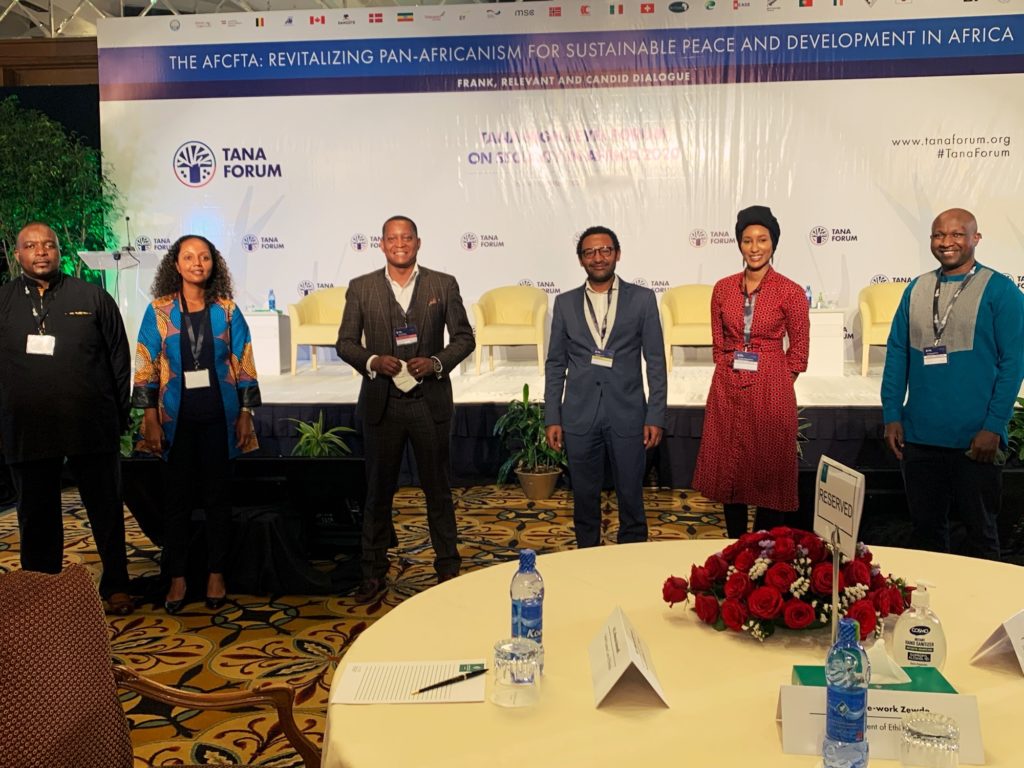
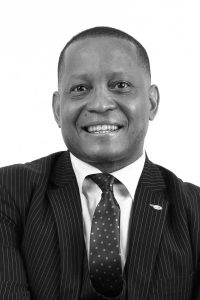
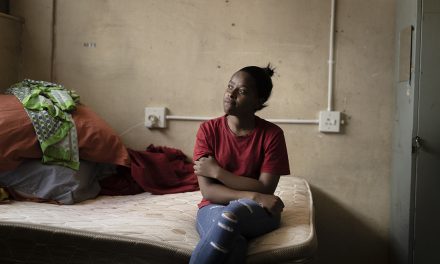
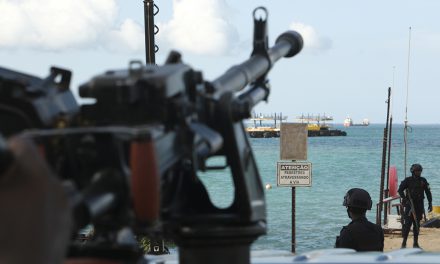
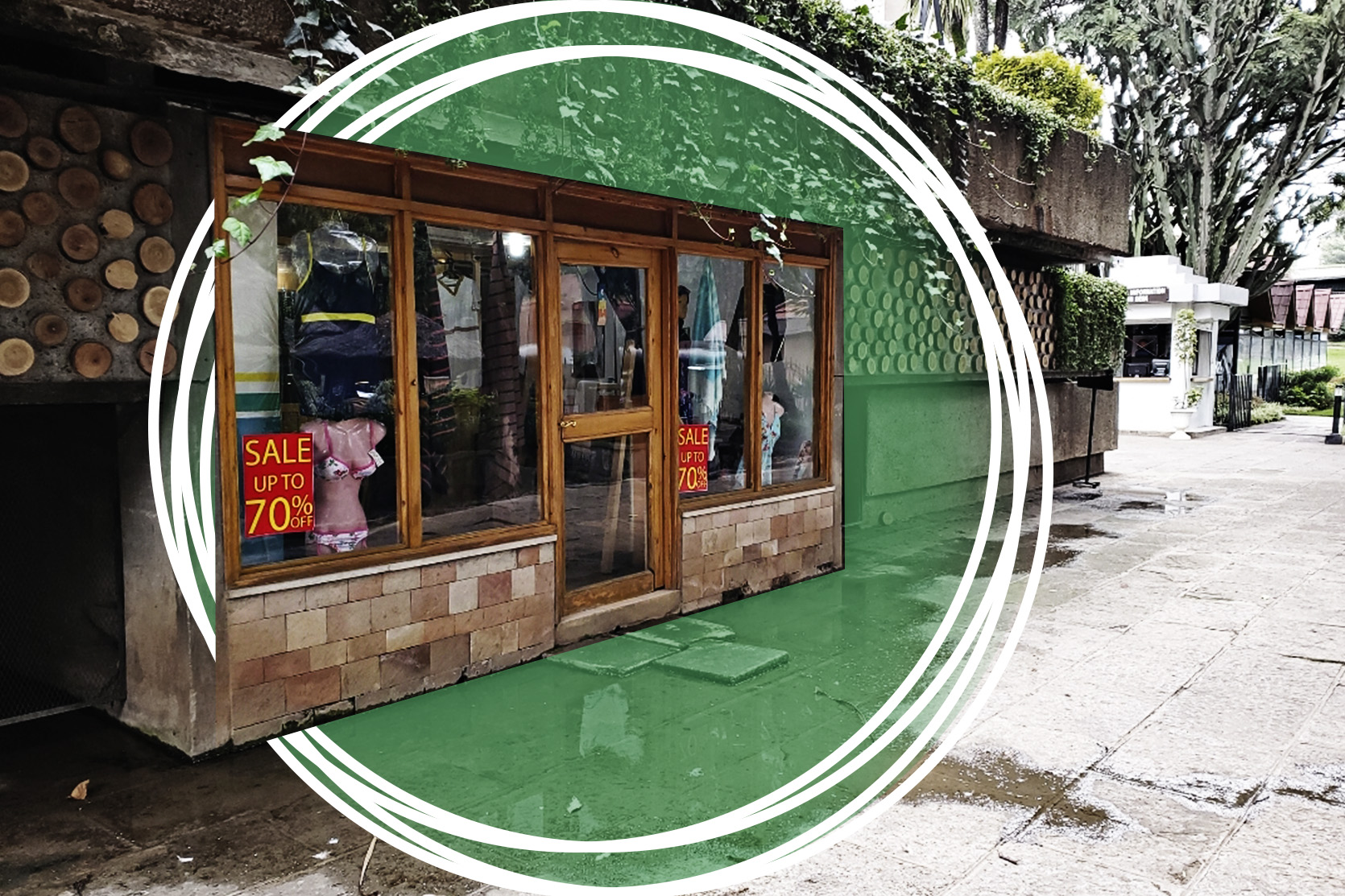
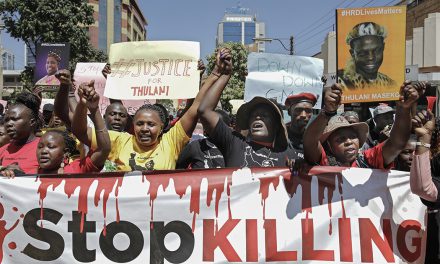


I need work b/c of my interest
Hi Daneil,
Thanks for getting in touch. Kindly keep an eye on our page for future vacancies*